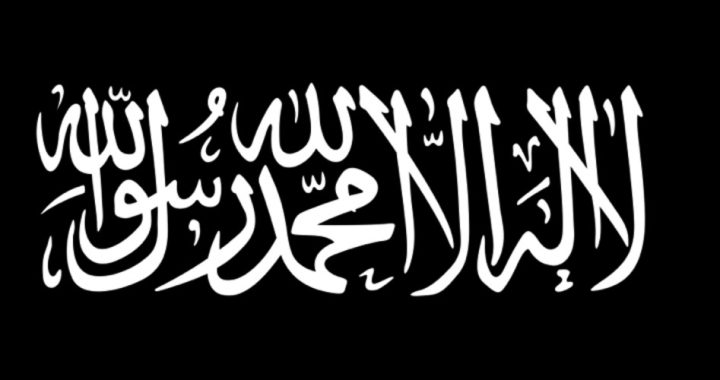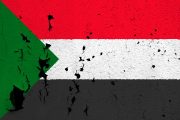
Gunmen believed to be part of Nigeria’s Boko Haram Islamic terrorist group attacked a government boarding school in northern Nigeria July 6, killing an estimated 42 people, mostly students, witnesses said. The attack appears to be the latest assault in the Islamist group’s self-declared war against Western values — a terrorist campaign that has destabilized the largely Muslim northern portion of the nation. Since the Nigerian military instituted a crackdown earlier this year on Boko Haram, the group — whose name translates roughly “Western education is sin” — has taken to targeting mostly defenseless schools throughout the north, particularly in Nigeria’s Yobe state, where the latest incident occurred.
In the latest attack, AFP News quoted Haliru Aliyu, a spokesman for General Hospital in the city of Potiskum, as saying that the Islamist attackers entered the government boarding school early in the morning, rounded up sleeping staff and students into a dormitory building, and then threw in grenades and opened fire. “We received 42 dead bodies of students and other staff of Government Secondary School in Mamudo last night,” Aliyu told AFP. “Some of them had gunshot wounds,” he added, but many were also burned, with reports that the attackers doused the building with fuel prior to the armed assault.
Boko Haram has claimed to be to blame for killing hundreds of students in attacks on schools in northern Nigeria in the past several months. According to news reports, on June 17 members of the terrorist group shot nine students dead as they were taking an exam in a private school in Maiduguri, considered one of the group’s strongholds. The day before, gunmen fired on a secondary school in Damaturu, the capital of Yobe state, killing seven students and two teachers.
And on July 4, reported the Associated Press, Boko Haram gunmen went to the home of a primary school headmaster in a town 100 miles from Maiduguri, a city held by Boko Haram, and gunned down the man and his entire family.
According to news reports, since 2009 violence linked to Boko Haram attacks have left at least 3,600 people dead in Nigeria. Some local residents said the latest attack was a reprisal by Boko Haram for the killings of 22 of its members during a July 4 military raid on one of the group’s strongholds.
Following the latest attack, Yobe state governor Ibrahim Gaidam “directed that all secondary schools in the state be closed down from Monday 8th July 2013 until a new academic session begins in September,” according to a government statement.
The U.K.’s Independent newspaper reported that in mid-May Nigeria’s president, Goodluck Jonathan, declared a state of emergency in Borno, Yobe, and Adamawa, the three Nigerian states most impacted by the Boko Haram violence. As part of its action, the government cut off cellphone service in those states in an attempt to prevent Boko Haram groups from communicating with one another. Landline phone service is mostly non-existent in the area. But Governor Gaidam said that had cell service been available to residents in Yobe, they could have alerted the military to the attack before it happened.
Christian groups have noted that Christians and churches have borne much of the brunt of Boko Haram terror. Todd Nettleton of the American group Voice of the Martyrs pointed out to The New American that Nigeria is somewhat evenly divided both geographically and in population between Muslims and Christians, with the southern half of the country having many churches and enjoying a stability that does not exist in the north.
Nettleton said that in the eyes of the Boko Haram, Christianity equates into Western mindset, and so Christians are often attacked because the Western values they embrace represent a threat to Islamic ways.
Voice of the Martyrs recently quoted one of its workers stationed in northern Nigeria as saying that Christians are targeted and “butchered like animals” on nearly a daily basis in northern Nigerian cities. “These Christians are imprisoned — though there may not be physical walls barricading them — but they are confined to one fate which is death by bombing, bullet, fire, cutlasses, machetes and economic hardship,” the VOM worker said. He added that these believers “live as if every day were their last. Someone told me in one of the cities, ‘We are just but walking corpses on the street waiting for our burial days.’”
Another Christian group that monitors persecution, Morning Star News, noted that while enduring other injustices, members of the Christian minority in northern Nigeria “are consistently and blatantly faced with pressure to convert to Islam. Christians are regularly and publicly humiliated for their religious identity, and anything that can be construed as disrespectful or contradictory to Islam is met with immediate violence.”
While the Boko Haram campaign may not specifically target Christians, the result of the murderous siege is still telling. In 2012, 900 Christians were killed in Nigeria, 70 percent of the listed total of all Christians martyred throughout the world that year. This year the number so far is inching toward 200 Christians killed, making Nigeria — specifically the northern half of the country — statistically the most dangerous place on Earth to be a confessing Christian.
Image of flag of Islamic groups with links to al-Qaeda



